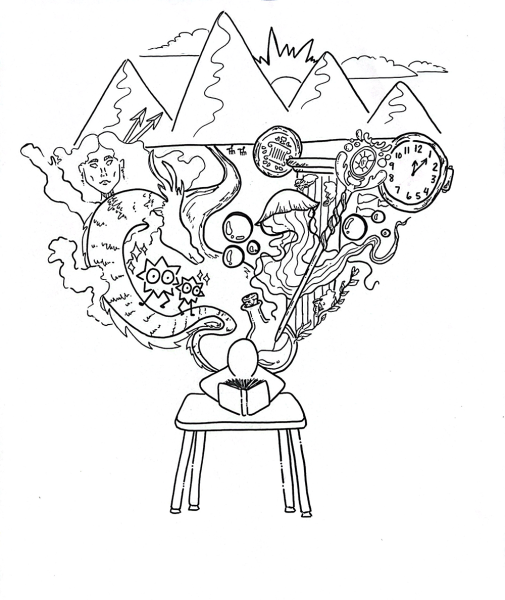Debunking Myths About the COVID Vaccines
We Spoke With an Infectious Disease Expert to Challenge 10 Persistent Misconceptions
Teachers celebrate after getting their first dose of the Pfizer vaccine. From top left: English teacher Todd Butler, social studies teacher Pam Ogilvy, 5th grade teacher Nerissa Taub with 8th grade social studies teacher Missy Buddenhagen and science teacher Alex Paulchell.
BHS staff members received the first dose of the Pfizer vaccine on Feb. 22 at the Cuyahoga County Educational Service Center and are scheduled to receive the second dose on Monday, March 15.
After their first dose, staff members reported a positive experience.
Nurse Kelly Debeljak was reassured by what she read about the vaccine.
“I did have some reservations [regarding] the vaccine [because] it currently only had emergency FDA approval (not full FDA approval) and [because] it had only been studied for a short period of time,” she wrote in an email. “I read a lot of research which helped assure me that the vaccine was safe, effective and necessary for our country to get control over the pandemic.”
Librarian Angela Maxwell also found solace in research.
“As a parent, I trust the scientific evidence behind the safety of vaccinations, so I was already comfortable,” she wrote. “I also don’t have any major allergies and have tolerated other vaccines well.”
Debeljak, Maxwell and most Beachwood staff members have been eager to get vaccinated, but there are many people in the larger community who are not.
Although the FDA-approved COVID-19 vaccines are proving safe and effective, there continues to be a troubling number of skeptical Americans unwilling to get vaccinated.
While attitudes have improved since vaccinations began, a poll published in February found that one in three Americans say they definitely or probably won’t get vaccinated. This is particularly concerning since public health experts say an overwhelming majority of people need to get vaccinated in order to achieve herd immunity.
In light of this concern, here are some of the phony claims that such naysayers abide by, unmasked (pun intended) by Dr. Aneela Majeed, an infectious disease expert who works for a local hospital system.
MYTH 1: You can get COVID-19 from the vaccine
DEBUNKED: None of the CDC-approved COVID-19 vaccines in the United States contain the live virus that causes COVID-19. This means that a vaccine cannot infect you with COVID-19.
“You can not get Covid from the vaccine as these are messenger RNA vaccines,” Dr. Majeed explained. “These vaccines activate your immune system and teach your own cells to make spike proteins. These vaccines do not send in a live coronavirus that could cause an infection.”
MYTH 2: The vaccine will alter your DNA
DEBUNKED: This misconception stems from a simple lack of knowledge of the difference between DNA and RNA. COVID-19 mRNA vaccines never affect or interact with DNA in any way. Instead, COVID-19 mRNA vaccines work with the body’s natural defenses to safely develop immunity to disease. AP Biology teacher Jamie Lader explained in an email:
“The vaccine is mRNA,” he wrote. “This means that once injected, the host cell is used like a factory. Your cells will read the mRNA and convert it to a protein that is basically the same shape as the spike proteins found on the coronavirus. Once this protein is made by cells and finds its way into your connective tissue and blood, your immune system will recognize this as being foreign and begin the process of activating and producing antibodies that recognize this protein thereby killing it if it gets in your body. This process of manufacturing antibodies takes up to 14 days after the injection of the vaccine.”
MYTH 3: There is no need for the vaccine if you’ve already been infected
DEBUNKED: This misunderstanding is somewhat justifiable, due to the fact that some natural immunity is built up after going through the course of the coronavirus. However, according to the Cleveland Clinic, there isn’t yet a good understanding of how long that natural immunity might last. Furthermore, this immunity might not even be effective. The Cleveland Clinic quotes Dr. Frank Esper:
“It’s very premature to make the assumption that just because you had COVID-19 that you’re safe from it. I don’t think anyone wants to be infected with COVID-19, whether it’s the first time or the second time or the third time — nobody wants it. Your previous infection may prevent you from getting sick, but that doesn’t necessarily mean that you can’t become infected and then spread it to others. You might think you’re safe because your antibodies are there, but if you’re still able to spread it to others for a short period of time, that’s doing no one any good either.”
The vaccine can boost your protection with very little risk of significant side effects. The Cleveland Clinic does point out, though, that patients who were treated with monoclonal antibodies or convalescent plasma while infected with COVID-19 should wait at least 90 days before getting the vaccine, to ensure that there is no interaction between the treatment and the vaccine.
MYTH 4: People with underlying health conditions should not get the vaccine
DEBUNKED: Dr. Majeed made sure to point out the major logical fallacy in this argument.
“Actually people with underlying health conditions such as obesity, diabetes mellitus, immunosuppressive medications and organ transplant are much more prone to develop severe and life-threatening COVID infection and should get a vaccine as soon as [it is] offered to them.”
MYTH 5: Once you get the vaccine, you don’t have to take precautions such as masking and social distancing
DEBUNKED: According to Johns Hopkins Medicine, Individuals who get the COVID-19 vaccination still need to practice infection prevention measures. (The same applies vice versa, even if you still take precautions like wearing a mask, you should by all means get the vaccine). Keep your mask on, and continue staying at least six feet from people outside your household until further notice. Vaccines do not stop the coronavirus from entering your body; they only prevent you from developing moderate to severe COVID-19. It’s not yet clear if people vaccinated for COVID-19 can still carry and transmit the virus, even when they themselves don’t get sick.
MYTH 6: The vaccines aren’t safe because they were developed quickly
DEBUNKED: The emergency situation that we are currently in obviously has warranted an emergency response, and labs around the globe have worked tirelessly to ensure the efficiency and practicality of this vaccine. Safety was in no way compromised even through the emergency situation.
“We are very confident that these vaccines are safe and studied in approximately 43,000 people,” Dr. Majeed said. “That being said, the safety will continue to be closely monitored by CDC and FDA.”
MYTH 7: There are severe side effects with the vaccine
DEBUNKED: According to the Mayo Clinic, we need to recognize that side effects are physical manifestations of the immune system doing its job. It is common to have post-injection symptoms with any vaccine or even medicine.
Maxwell noted that she experienced minor side effects after receiving her first shot.
“My arm hurt, and I felt a little tired the next day,” she wrote. “It was similar to the way I feel after the flu shot.”
Debeljak did as well.
“I had a mild headache with mild body aches and a stomach ache seven hours after the vaccine,” she wrote. “By the morning I was fine… just a sore arm that lasted several days.”
However, side effects from the second dose are likely to be a little more significant.
“It appears that the second vaccine seems to elicit more severe side effects in some individuals that usually last for approximately 24 hours,” Debeljak wrote. “I am interested to see how I react after my second vaccine.”
Dr. Majeed explained further.
“Most common reactions we have seen include injection site pain, headache or muscle aches usually in the first two days that are resolved within a week after vaccination,” she said. “So far [COVID-19] vaccine doses have been administered with minimal safety concerns. As an [Infectious Disease] physician [who has treated] people who fought for their lives with this virus, these mild side effects are worth taking.”
MYTH 8: The vaccine’s contents are unknown
DEBUNKED: There have been social media posts galore stating that the COVID-19 have ‘tracking microchips,’ sterilizers causing infertility and various toxins. However, these claims are unsupported. The FDA approved all of the ingredients for the three approved vaccines, has found them safe and publishes them here: Moderna, Pfizer and Johnson & Johnson.
MYTH 9: More people will die from the vaccine than from COVID-19 itself.
DEBUNKED: This claim is completely and entirely false. Some have claimed that COVID-19’s mortality rate is 1-2 percent so there is no need for vaccination. However, what needs to be taken into account is that a mortality rate of 1 percent is 10 TIMES more lethal than the seasonal flu, and the vaccine for that is still recommended annually for most people.
More than half a million Americans died from COVID-19 in the last year, more Americans than died in any war except the Civil War, and it seems likely the death toll will surpass that number in the next few months. Furthermore, the mortality rate for a virus like COVID wholly depends on age, sex and underlying health conditions, so those who are at risk have even further reason to get vaccinated.
MYTH 10: One vaccine is ‘better’ than the other
DEBUNKED: Dr. Majeed explained the facts behind this myth.
“[The Pfizer and Moderna] vaccinations, which [had been approved as of our Feb. interview] offer around 95 percent protection which is excellent in terms of vaccination,” she said. “New vaccinations … [show] efficacy and outcomes [from] clinical trials that are somewhat different, but so far data showed that they are effective and there is no preference over one another.”
The Johnson & Johnson vaccine was approved soon after our interview, and although people may think that it is ‘inferior’ to the others because of its efficacy rate of 72 percent, keep in mind that efficacy and grades are not the same. The Pfizer and Moderna vaccines are not ‘A’s, and the Johnson & Johnson is not a ‘C’. In fact, the flu vaccine we all rely on has an efficacy rate of less than 50 percent. A success rate of 72 percent is excellent in terms of vaccination, and all three are ‘home-run vaccines’, according to the Rutgers Global Health institute.
* * *
Librarian Angela Maxwell is grateful to the school district, Giant Eagle and Cuyahoga County for organizing Beachwood’s vaccine distribution.
“It was so fast and efficient that I focused mostly on following the directions,” she wrote. “I feel like the shot symbolized another step in the right direction towards ending this pandemic.”
Nurse Kelly Debeljak also appreciated all the work that went into vaccine distribution.
“When you think of what a huge undertaking it is for the country to roll out a vaccine program in such a short period of time and to so many people, it’s amazing how well it has worked,” she said. “The day I received my vaccine I felt quite patriotic; like I was playing a huge part in our country’s effort to reduce the spread of the virus.”

Samah Khan (she/her) started writing in the fall of her sophomore year in 2020. She enjoys covering macroscopic world issues and their impacts on the Beachwood...




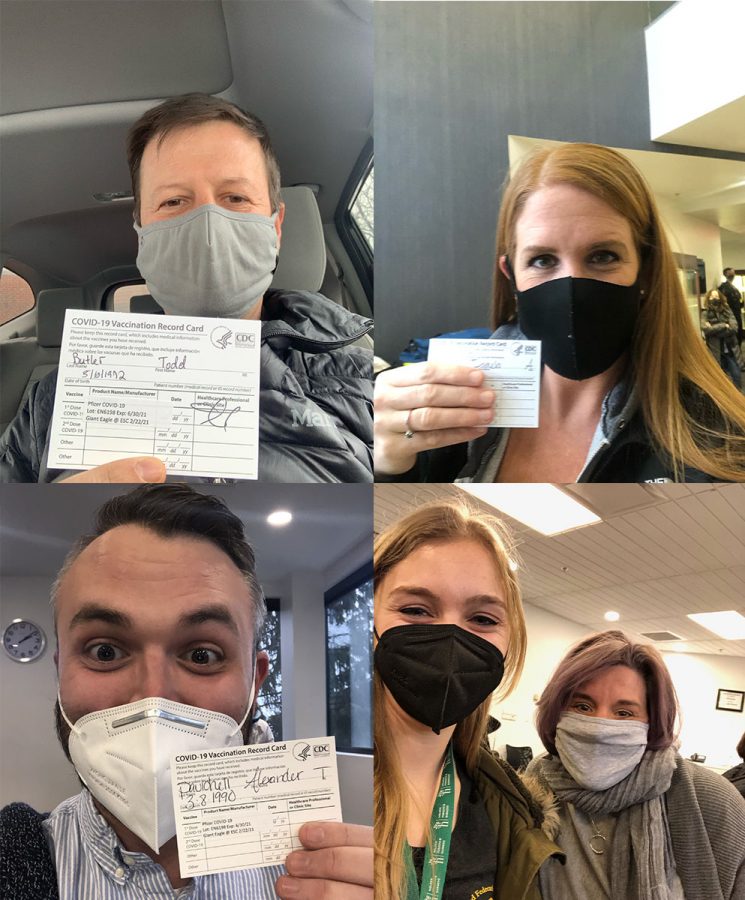
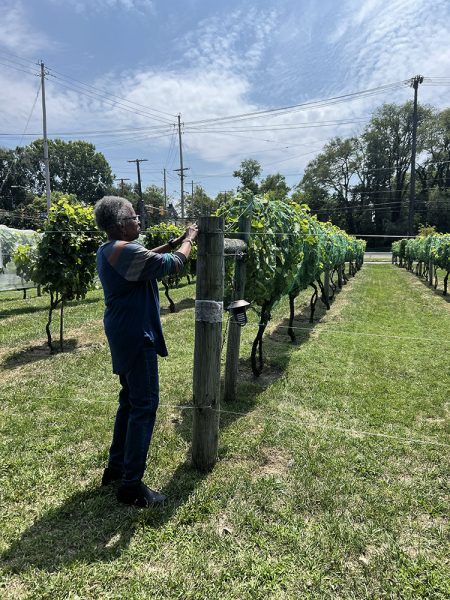
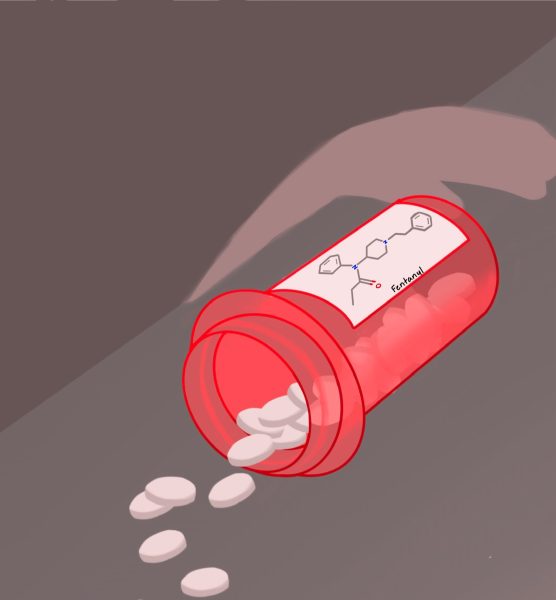


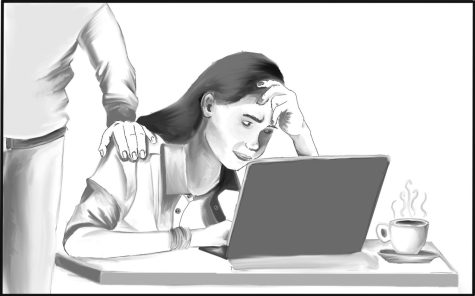
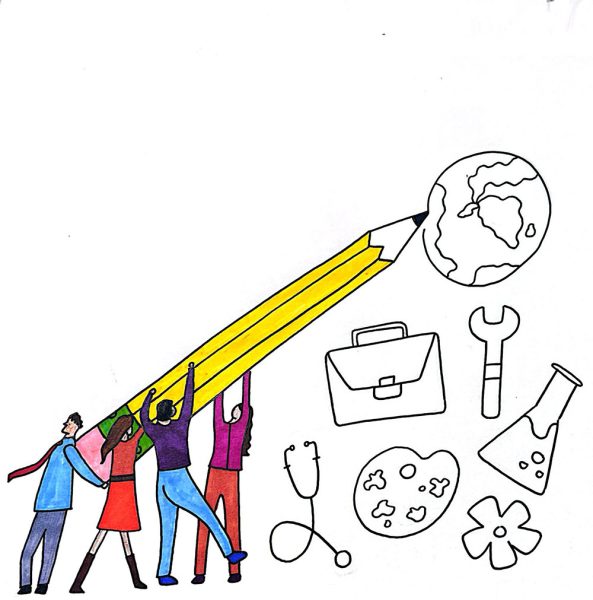
![“My parents have always said that education is important. My parents are Chinese immigrants, I'm Chinese American, [and that's a] value that has always been ingrained in our community,” said Senior Lyndia Zheng, pictured with Tony Zheng](https://bcomber.org/wp-content/uploads/2025/10/DSC_4244-600x400.jpg)


